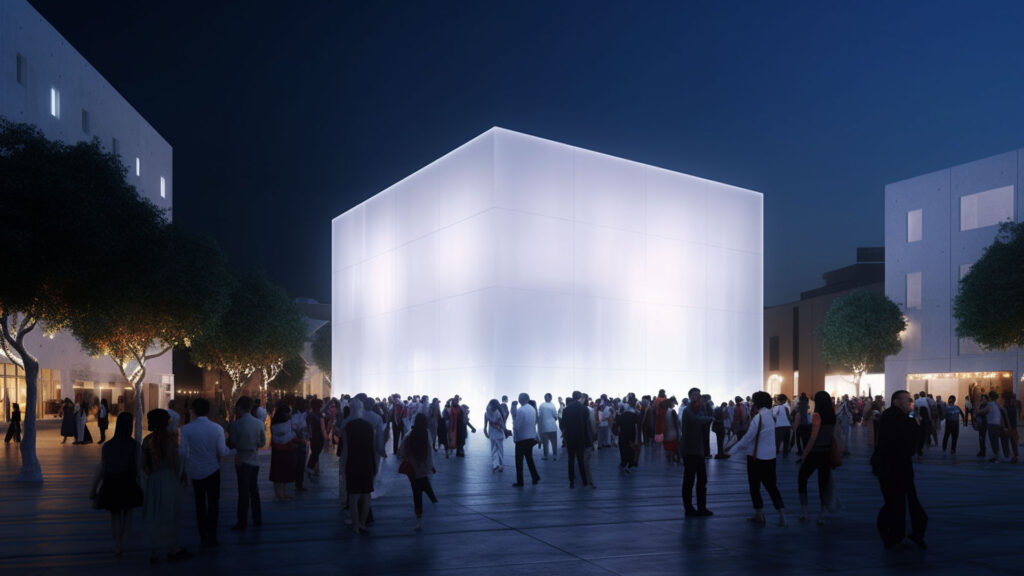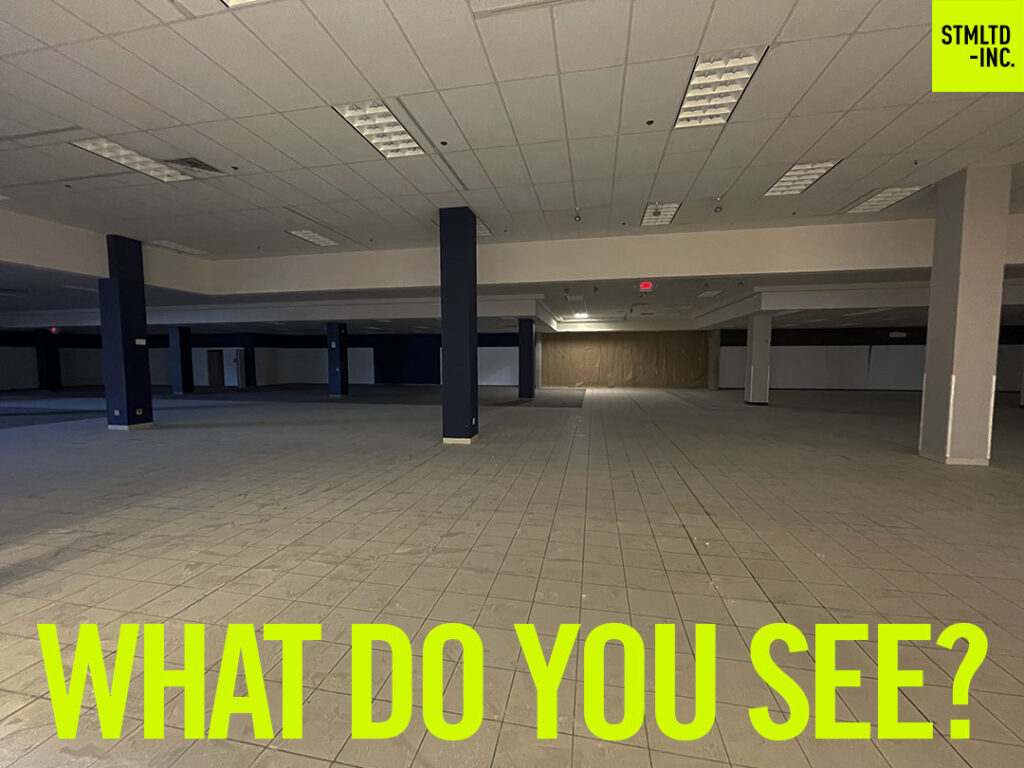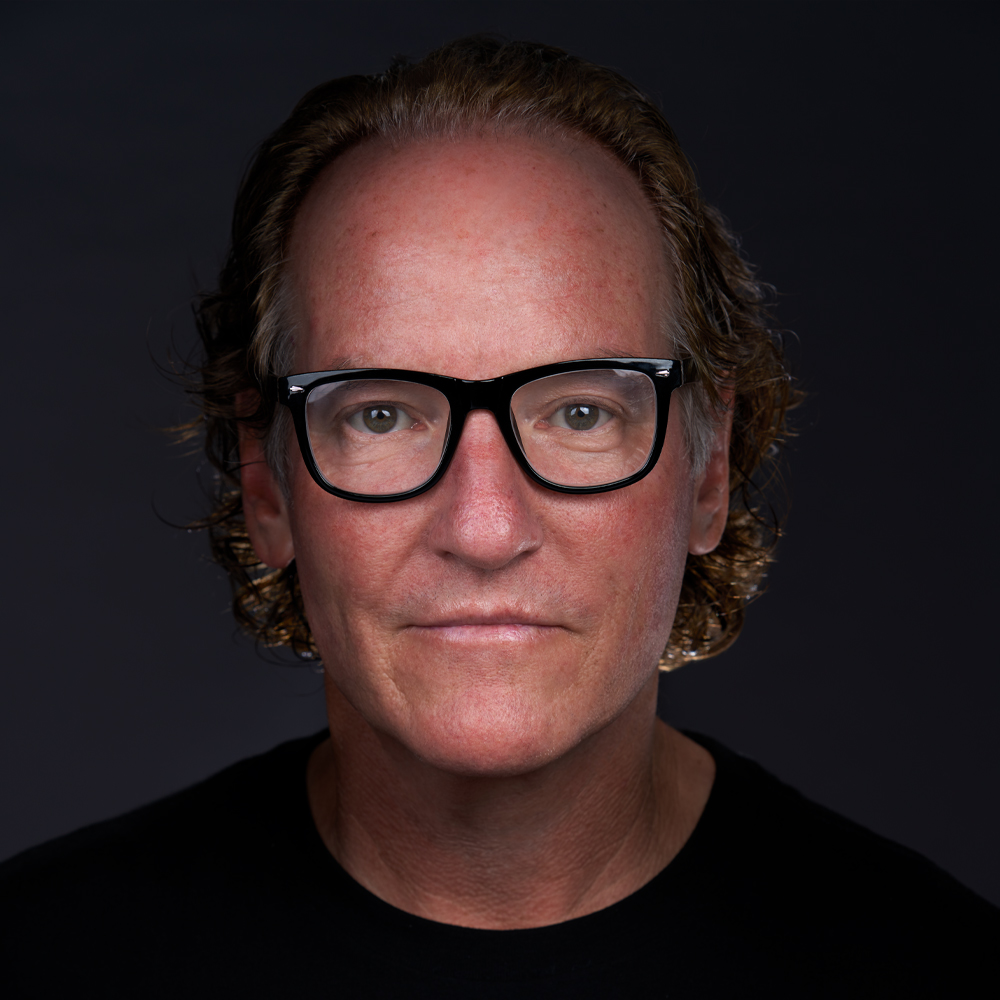Bridging the Shopping Center — Entertainment Gap
By Robb Wagner

Introduction
The landscape of the retail industry is undergoing a significant transformation. As shopping centers face the challenge of declining foot traffic and store closures, a new opportunity emerges to breathe life back into these spaces. This blog explores the potential for integrating entertainment into shopping centers and how it can fill the void left by struggling retail stores. We will delve into the need for mindset shifts among shopping center owners, developers, and operators — and the crucial role collaboration and innovative business models will play in revitalizing these spaces.
Embracing Change: From Retail to Entertainment
The entertainment and shopping center industries may seem worlds apart, but a remarkable transformation can occur by bridging the gap between them. Instead of viewing the decline in foot traffic and the closure of stores as insurmountable obstacles, we can see them as opportunities for innovation. As an advocate for change, I recently toured an empty big box store and was struck by its immense potential for transformation. These spaces’ sheer size and layout offer a blank canvas for creative endeavors.

Mindset Shifts: A Key to Success
Owners, developers, and operators must be willing to undergo mindset shifts to seize the potential within shopping centers. The traditional lease model that once dominated the retail industry may no longer suffice in this new era. Embracing entertainment as a central focus requires a shift in thinking toward collaboration, partnerships, and innovative business deals. By fostering a community of shared goals and interests, shopping centers can become vibrant hubs of entertainment, attracting visitors and ensuring their continued success.
New Business Deals: Embracing Innovation
Innovative business deals will be the driving force behind the revitalization of shopping centers. Traditional business deals must give way to new, flexible arrangements that align with the changing landscape. To transform shopping centers into entertainment centers, owners, developers and operators must be open to new ideas like funding development and revenue-sharing models instead of traditional leases. By embracing these innovative approaches, shopping centers can diversify their offerings and provide unique experiences that draw visitors from far and wide. And, they can discover new revenue models to replace traditional models.
Ready for the Challenge
As an enthusiastic advocate for integrating entertainment into shopping centers, I am excited to help stakeholders navigate this transformative journey. From providing insights and strategic guidance to fostering connections with potential collaborators, I aim to support the industry in realizing its full potential. Together, we can create vibrant, thriving spaces that offer more than just shopping, but a rich tapestry of entertainment, community, and shared experiences.
Conclusion
The time for change in the shopping center industry is now. By embracing entertainment, shopping center owners, developers, and operators can breathe new life into these spaces and overcome the challenges of declining foot traffic and store closures. Mindset shifts, collaboration, and innovative business models are the keys to success. By working together and embracing change, shopping centers can become dynamic destinations that captivate visitors and ensure their continued relevance in the evolving retail and entertainment world.
How We’re Merging Two Disparate Industries
With a deep understanding of experiential entertainment, Robb Wagner, the Founder of Stimulated-Inc., is at the forefront of bridging the gap between this industry and shopping centers. His creative studio is proud to collaborate with esteemed top-tier partners in this endeavor.
Stimulated-Inc.’s commercial real estate partner is Phil Botana, an Associate Director at Newmark Zimmer’s Kansas City office. With a diverse business development, sales, marketing, and communications background, Phil has represented tenants and landlords across various industries. Before joining Newmark Zimmer, Phil managed multi-family properties and ran a successful business consulting practice specializing in communications and marketing. He later played a pivotal role in the growth of a biotechnology firm’s global technology-transfer business and oversaw solar energy installations for a leading company in the United States. With extensive experience in the motion picture industry, including producing and financing independent feature films globally, Phil brings a wealth of knowledge to his current role. Originally from Boston, Massachusetts, and raised in Washington, DC, he has worked closely with major studios like Lionsgate, Warner Brothers, and Universal Pictures on debt and international tax-structured financing.
Connect with me on Zoom

Robb Wagner is an experiential artist, whose creative breakthroughs have raised the bar on big and small screens. He spearheaded P. Diddy’s virtual duet with the late Notorious B.I.G., imagined the live direction of Disney’s Hannah Montana 3D Film, led the production of Michael Jackson’s This Is It 3D Tour, and produced the first-ever YouTube Music Awards, alongside Spike Jonze.
A specialist in erasing the line between the physical and virtual worlds, Robb’s real magic sauce is to forecast emerging technologies and call on them in the right creative moment.
This ability to innovate, design, direct, and produce his own work has helped Robb solidify long-lasting industry relationships and build teams to get these radical jobs done. As a result, Robb’s work spans 17 years of cultural moments, like the Academy Awards, Foo Fighters Concerts, and the MTV Video Music Awards.
Throughout, Robb’s aim is to create a bridge between imagination and reality and collaborate on partnerships where the ask is simple: How can we do something that’s never been done before?
Member: Directors Guild of America
